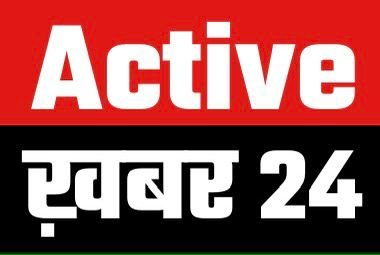Poshan Abhiyaan ICDS
In India, the issue of malnutrition poses a significant challenge, particularly among children and pregnant women. To address this pressing concern, the Government of India launched the Poshan Abhiyaan (Nutrition Campaign) as part of the Integrated Child Development Services (ICDS). This initiative aims to improve the nutritional status of children and women, ultimately paving the way for a healthier future. This article delves into the objectives, strategies, and impact of Poshan Abhiyaan, shedding light on its critical role in combating malnutrition.
Objectives of Poshan Abhiyaan
Poshan Abhiyaan was launched with several key objectives in mind:
- Reducing Malnutrition: The primary goal is to decrease the prevalence of malnutrition among children under the age of six, as well as among pregnant and lactating women.
- Promoting Awareness: The campaign seeks to raise awareness about the importance of nutrition and healthy eating practices within communities.
- Holistic Development: Ensuring the overall development of children, including physical, mental, and emotional well-being.
- Empowering Women: Providing mothers with the necessary knowledge and resources to improve their nutritional practices and, consequently, their children’s health.
Strategies of Poshan Abhiyaan
To achieve its goals, Poshan Abhiyaan employs various strategies:
1. Community Participation
Community involvement is pivotal to the success of the campaign. Anganwadi workers, health workers, and local volunteers collaborate to implement the program, engage with families, and disseminate vital information about nutrition.
2. Information and Education
The campaign focuses on spreading knowledge regarding nutrition through various mediums, including workshops, seminars, and informational materials. This ensures that families understand the importance of a balanced diet.
3. Special Nutrition Programs
Poshan Abhiyaan introduces targeted nutrition programs aimed at specific groups, such as children, pregnant women, and lactating mothers. Initiatives include community meals, nutrition distribution, and health check-ups.
4. Monitoring and Evaluation
Regular monitoring and evaluation of data are crucial to assess the campaign’s effectiveness. Health and nutrition status of children are regularly tracked to identify areas needing improvement.
Key Features of Poshan Abhiyaan
Several unique aspects of Poshan Abhiyaan contribute to its efficacy:
1. Data-Driven Approach
The campaign emphasizes the use of data for decision-making. By collecting and analyzing information on nutrition and health, authorities can better target their interventions.
2. Focus on Dietary Diversity
Poshan Abhiyaan advocates for diverse diets that include a variety of grains, fruits, vegetables, and dairy products. This approach aims to ensure that children and mothers receive all essential nutrients.
3. Health Services Integration
The initiative integrates health services with nutrition programs. Regular health check-ups, immunization drives, and maternal health services are part of the overall strategy to enhance nutritional outcomes.
Challenges Faced by Poshan Abhiyaan
While Poshan Abhiyaan has made significant strides, it faces several challenges:
1. Awareness Gaps
In many rural areas, there remains a lack of awareness about the importance of nutrition. Bridging this gap is essential for the campaign’s success.
2. Resource Constraints
Access to resources, such as nutritious food and trained personnel, poses a challenge in implementing the program effectively, especially in remote areas.
3. Multifaceted Causes of Malnutrition
Malnutrition is influenced by various factors beyond diet, including economic conditions, education, and cultural practices. Addressing these underlying issues is crucial for long-term success.
Impact of Poshan Abhiyaan
The impact of Poshan Abhiyaan is becoming increasingly evident across various states in India. Some notable outcomes include:
1. Reduction in Malnutrition Rates
Several states have reported a decrease in malnutrition rates among children due to the targeted interventions of the campaign. This is a positive indicator of its effectiveness.
2. Improved Health Indicators
With the emphasis on health check-ups and immunizations, there has been an overall improvement in health indicators among children and pregnant women.
3. Enhanced Community Engagement
The campaign has fostered a sense of community involvement and responsibility, encouraging families to take charge of their nutrition and health.
Conclusion
Poshan Abhiyaan is a crucial initiative aimed at tackling the pervasive issue of malnutrition in India. By focusing on community participation, education, and integrated health services, the campaign is making significant progress toward improving the nutritional status of children and mothers. However, continued efforts are required to overcome challenges and ensure that the benefits reach the most vulnerable populations.
As stakeholders in this initiative, from government bodies to local communities, it is our collective responsibility to support and promote the objectives of Poshan Abhiyaan. Together, we can pave the way for a healthier and more nourished future for India, ultimately transforming the lives of countless children and families across the nation.
Through sustained commitment and collaborative efforts, Poshan Abhiyaan can become a beacon of hope in the fight against malnutrition, helping India achieve its goals for a healthier society.
Read More :-
